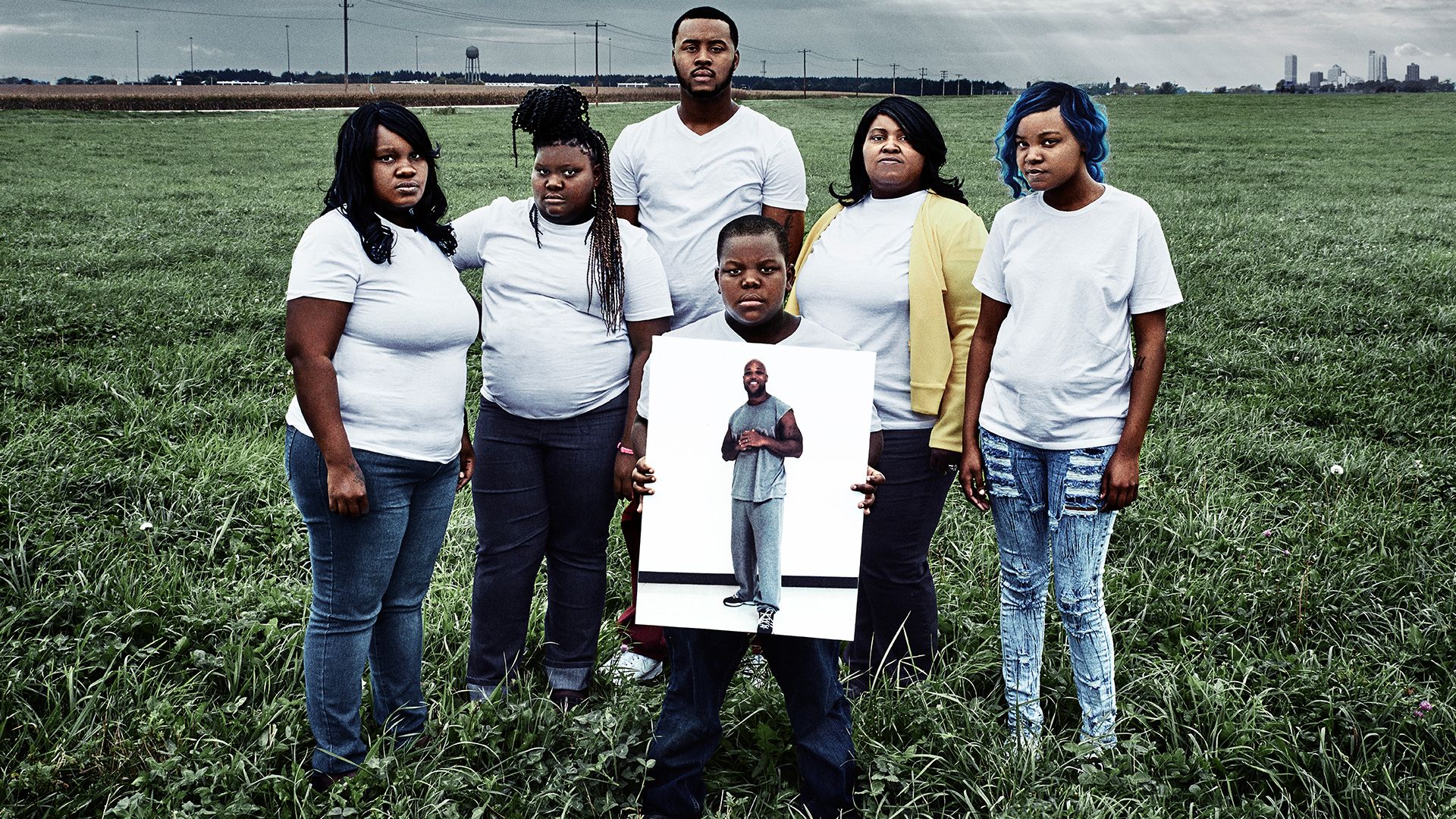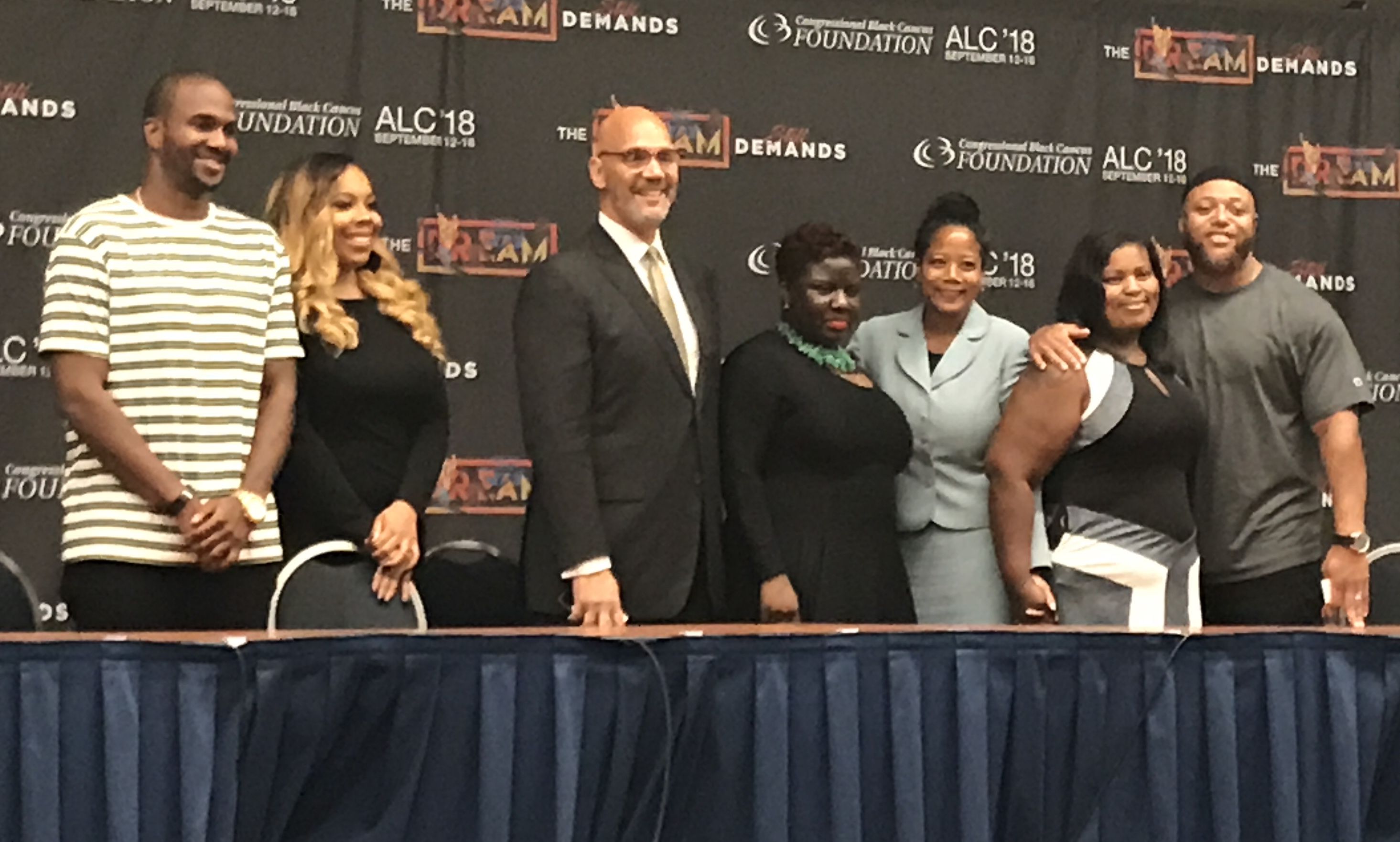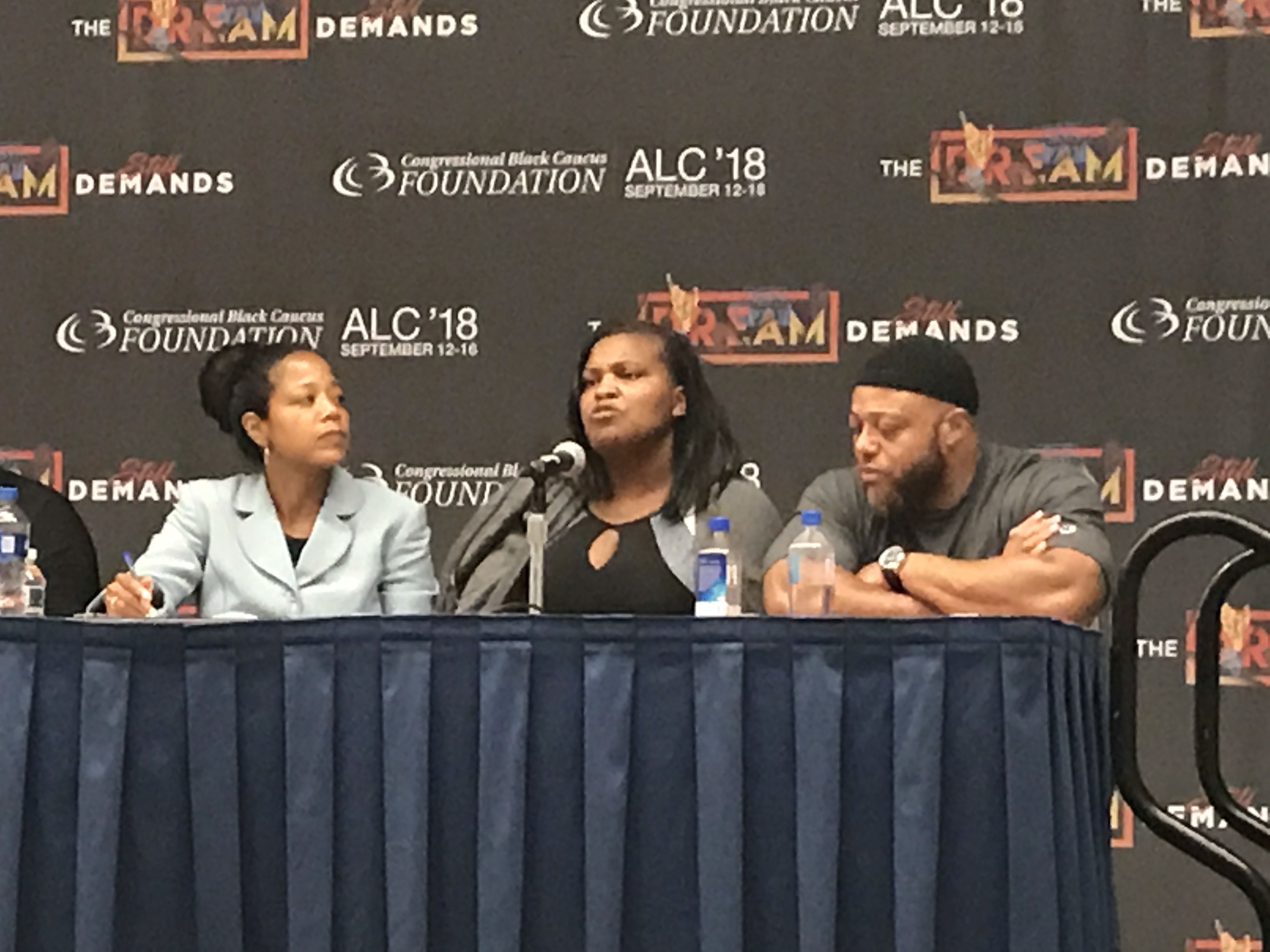“Why are we so punitive?” Lauren-Brooke Eisen asked a crowd of Washington professionals and students. “A part of that is because of race. We are the most punitive country on the planet,” Eisen said to a rapt audience at the 14th and V Busboys and Poets.
Eisen's comments came during one of several events on mass incarceration taking place in Washington, D.C., during mid-September 2018. Besides the panel on prison reform at Busboys and Poets, there was a screening and discussion of the documentary Milwaukee 53206.
The Busboys and Poets panel focused on the policy surrounding the criminal justice system, while the Milwaukee 53206 discussion centered around the loss felt by families of incarcerated people. While different in scope, the theme of both events was the same: the American prison system is broken, and we need to fix it now.
The Busboys and Poets Prison Reform Panel, co-sponsored by the Free Minds Book Club, took place on Wednesday, September 12, 2018, and focused on race, class, and the issue of mass incarceration.
Eisen, a Pulitzer Center grantee, is senior fellow at the Brennan Center’s Justice Program, where she focuses on improving the criminal justice process through legal reforms. She is also the author of Inside Private Prisons: An American Dilemma in the Age of Mass Incarceration.
Other panelists included Paul Butler, Georgetown Law professor and author of Chokehold: Policing Black Men; Clint Smith, a finalist for the NAACP Image Awards and author of the award-winning book Counting Descent; and Marc Mauer, author of Race to Incarcerate and executive director of the Sentencing Project.
A common message among the panelists was that the prison system was not only flawed, but also a morally corrupt institution. The idea of the prison system is to lock people up in cages, Butler said. “Prison reform...that’s way too unambitious. The system is about the control of people of color, especially African American men,” he said. “[Prisons] are horrible wretched places...we never talked about reforming slavery, we talked about abolishing [it].”
“On a fundamental level, a prison is a cage,” added Smith, “and I think it’s a counter to what it means to be human.”
Smith noted that our discourse around incarceration should question the morality of putting a child, or anyone, in prison and locking them up for the rest of their lives. “We have to have a more honest and more robust conversation on what is necessary to move away from mass incarceration in ways that aren’t always politically convenient,” Smith explained.
Eisen believes that the policy platform is the way to make significant change on justice reform. But she also believes we need to question the racial disparities within the justice system.
Eisen spoke about her forthcoming Pulitzer Center-supported reporting project, which examines incarceration and racial disparities in the justice system in the United States, particularly the conditions of private versus public prisons. Her project will compare the United States’ criminal justice system to those of Australia and New Zealand, where prisons receive government incentives to make sure fewer people return to prison upon release. Eisen also will examine the racial disparities in prisons in the three countries, as Australia and New Zealand also face vast racial disparities with their indigenous populations.
Many advocates agree that politicization of race and class has saddled the nation with a flawed criminal justice system. So how do communities deal with the consequences?
The day after the Prison Reform Panel, the conversation continued. In collaboration with the Congressional Black Congress Foundation’s 48th Annual Legislative Conference, Odyssey Impact hosted a screening of the documentary Milwaukee 53206, followed by a panel discussion, ‘The Most Powerful Medium.’
The documentary examined the harsh reality of people living in the Wisconsin zip code 53206, which incarcerates the highest proportion of African-American males in the nation. Directed by Keith McQuirter and produced by Transform Films, the film dives into the stories of several men–some serving time, some formerly incarcerated–and their families, all feeling the effects of excessive sentencing and the challenges of re-entering society.
Particularly moving was the story of Baron Walker, who was originally sentenced under the now-repealed Truth in Sentencing Act and had been unable to seek parole. Beverly Walker, his wife, had shouldered the burden of caring for their large family alone, and the toll of his absence grew heavier after a glimpse of hope in the form of a parole appeal went unanswered.
Following the screening, Odyssey Impact’s Melissa Potter moderated a panel discussion. Van Lathan, senior producer at TMZ and host of The Red Pill Podcast; Twyla Carter, senior staff attorney at the ACLU's Criminal Law Reform Project; Rev. Derrick Harkins of Union Theological Seminary; and Indira Henard, executive director of the DC Rape Crisis Center, discussed the mass incarceration crisis and the power of film to inspire change. To the audience’s surprise, Baron and Beverly Walker joined the panel as well–hardly a month after Baron’s release from prison in August and two years after the film was released in June 2016.
The panelists discussed the myriad issues that make up the mass incarceration crisis in the United States today, including the criminalization of addiction, high bail postings, and the stigma associated with being a formerly incarcerated person.
“Incarceration is a kind of trauma, on the individual as well as the family,” said Henard. “It takes a village to raise a child, what does it take to raise a family?”
Harkins urged faith communities to come alongside families feeling the loss of a parent or sibling in prison. He wondered what it would be like to imagine a justice system that restores and renews, not just punishes, to “put life back into lives.”
Odyssey Impact has created a social impact campaign for Milwaukee 53206, working with faith communities, government agencies, advocacy groups and nonprofit organizations to host screenings of the documentary and help draw attention to the need for parole and sentencing reform in Wisconsin and other parts of the United States.
Potter said she hopes that screening documentaries like Milwaukee 53206 will “inspire communities to solutions for change. That’s bringing the right people to the table, having changemakers have these great discussions.”


